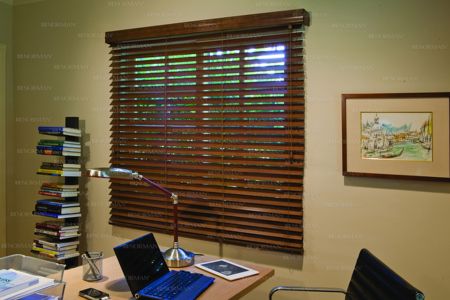Moisture Resistance
One of the major downfalls of natural wood blinds is their susceptibility to moisture. Fortunately, this isn't a vulnerability that faux wood blinds share. Compared to their natural wood counterparts, faux wood blinds make much better window treatment options for any room of the house that tends to be a bit more humid than other areas, including rooms like your kitchen, bathrooms, laundry rooms, and even garages. Because of their synthetic construction, faux wood blinds are also able to withstand extreme temperatures better than their natural wood cousins, making them ideal for any rooms of the house that tend to suffer from fluctuating temperature extremes, like outdoor sheds and such.
Lower Cost
One of the frequent barriers that homeowners run into when entertaining the thought of investing in wooden blinds for their homes is the price point. If real wood blinds are proving to be an option that is just a bit out of budget, it might be looking into faux wood blinds if for no other reason than all of the money you stand to save. Faux wood blinds, almost across the board, are generally a more affordable option than natural wood blinds. That will allow you to stretch your dollar further and letting you outfit more windows throughout your home for the same price. If you want the visual aesthetics of natural wood blinds but aren't prepared to pay the price tag for them, faux wood blinds can be a wonderful alternative.
Enhanced Durability
Natural wood blinds are renowned for their durability, but faux wood blinds take that one step further. Because faux wood blinds are manufactured using composite materials, they are even more durable than their natural counterparts, able to withstand extended periods of wear and tear without bending, cracking, or breaking. Additionally, because of their synthetic construction, they aren't as vulnerable to damage from cleaning solutions and liquids when you go to clean them.

